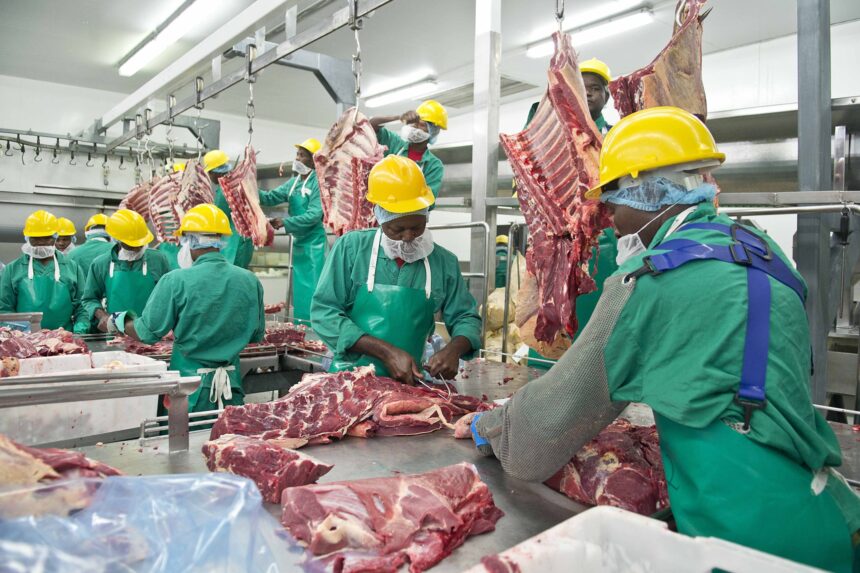Tariff retaliation and escalating trade tensions might signal the start of a global trade war where, like grass when two elephants clash suffers the most, consumers around the world will bear the brunt the most.
Consumers, analysts stated, will most likely be paying the price for the most sweeping tariffs yet imposed by United States of America president Donald Trump last week.
Both the World Trade Organisation (WTO) and the International Monetary Fund (IMF) have warned about the potentially devastating consequences of the economic fallout expected from these new tariffs.
The tariffs “clearly represent a significant risk to the global outlook at a time of sluggish growth,” warned IMF managing director Kristalina Georgieva.
The WTO projects global goods’ trade could shrink significantly, in a stark reversal from earlier growth forecasts.
WTO director general Ngozi Okonjo-Iweala warned that the tariffs could spark a trade war, with countries retaliating and further disrupting global markets.
Trump’s latest tariffs came into effect on Saturday, and include a 10% baseline charge on all US imports, with additional levies targeting nations with the largest trade deficits.
Responding on Friday to the new tariffs, which include a 21% charge on all Namibian goods exported to the US, executive director (ED) in the trade ministry ambassador Penda Naanda noted that Namibia will explore several strategies to mitigate the impacts.
“It is also worth noting that the imposition of tariffs could lead to decreased competitiveness of Namibian beef and fish exports in the US market, potentially reducing sales’ volumes and demand for Namibian products due to price increases attributed to the tariffs. Overall, the tariffs could disrupt established supply chains and negatively affect Namibia’s export earnings, impacting broader preferential stability for Namibian products under the Generalised System of Preferences (GSP) regime,” he stated.
Naanda said the move by the US administration has created turbulence in global trade, which undermines the commitment under the Africa Growth and Opportunity Act (AGOA), a non-reciprocal agreement designed to support developing countries and least-developed countries (LDCs) in Africa by leveraging preferential access to US markets. Unfortunately, he warned, this measure could result in unfair market conditions for Namibian products to compete fairly within the US market.
“In response to the 21% tariffs imposed on Namibian exports to the United States, it is important to clarify that these duties are not based on the Most-Favoured Nation (MFN) principle, but on the US trade deficit with each country divided by the total value of imports from nations trading with the USA,” the trade ED stated.
He added that while Namibia’s 42% tariff on the USA may be a contributing factor, it is important to note that not all goods from the USA into Namibia attract customs duties as per the Southern African Customs Union (SACU) tariff structure.
“In terms of the SACU agreement, the council shall, on the recommendation of the Tariff Board, approve customs’ duties to be applied to goods imported into the Common Customs Area from outside that area. Therefore, this action requires a balanced approach from SACU member states, including Namibia, to find a workable solution based on reciprocity,” Naanda said.
Weighing in on the trade developments, economist Josef Sheehama observed that 21% tariffs on Namibian imports could upset established supply chains, have a negative impact on export revenue, and jeopardise the stability of Namibian products on the international market.
“Diversifying export markets, bolstering regional and international trade agreements within Africa, and attracting investment from China and the BRICS nations will all be essential to mitigate the consequences of US tariffs. Alternatives to China in response to American executive directives, especially the severe tariffs put on nations as a key tool in a negotiation strategy to get the best trade terms for the US, are appearing as the world moves away from US trade dominance and global alliances shift,” he stated.
Namibia has since 2001 benefitted from duty-free access to the US market for over 6,400 products by virtue of AGOA.
Also weighing in, PhD economics candidate Alina Mbango commented that the new tariffs aren’t just about higher prices, but actually strike at the heart of Namibia’s economic stability, risking jobs, currency value and the country’s position in global supply chains.
“Therefore, in order to avoid the worst-case scenario, Namibia could diversify aggressively by adding value to raw materials as adopted by other countries during crises, and speeding up pending trade deals before tariffs inflict more damage,” she suggested.
Mbango added that the decision made now will determine whether Namibia slides into a US tariffs-imposed recession, or seizes a chance to reinvent its economy.


